This post is the 2nd part of the S-1 SERIES MIND RUBRICS INTERPRETATIONS FROM KENT’S REPERTORY.
Follow the link provided above in case you have missed to review the S series rubrics given in another post.
Let’s continue…
Table of Contents
ToggleSLOWNESS
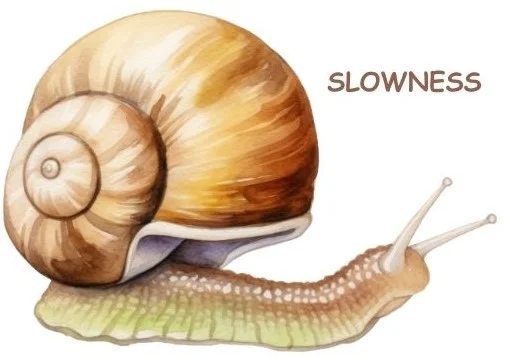
- “Slowness” refers to the quality or state of being unhurried, taking more time than usual to complete an action or process.
- It suggests a reduced pace or delay in movement, progress, or responsiveness.
- Slowness can apply to physical actions, like walking or speaking, as well as mental processes, such as understanding or decision-making.
- It may arise from various factors, including deliberate caution, physical limitations, complexity of tasks, or lack of urgency.
- Slowness can influence efficiency and productivity, sometimes indicating a deliberate approach, while in other cases, it might be a source of frustration.
Remedies: Con., Hell., Phos.
SMALLER, things appear
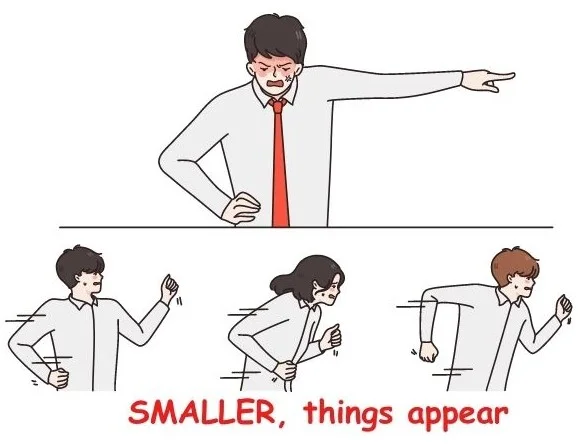
“SMALLER, things appear” in psychological terms refers to a cognitive bias where individuals with an inflated sense of self-importance perceive external factors, challenges, or others’ achievements as less significant or diminished in comparison to themselves.
This distorted perception is influenced by the ego’s desire to maintain a sense of superiority and dominance.
It can lead to underestimating the importance of external events, downplaying others’ accomplishments, and overestimating one’s own contributions.
This cognitive bias is driven by the need to bolster one’s self-esteem and protect the ego from feelings of inadequacy.
Remedies: Plat., stram.
SMILING
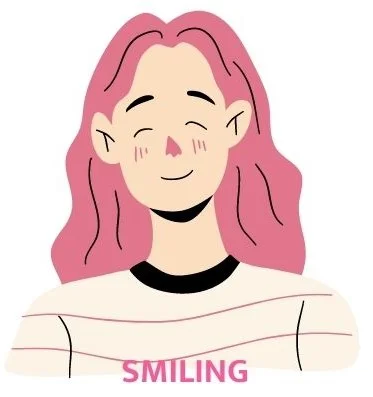
SMILING: Expressing happiness or amusement through a cheerful facial expression.
- Foolish: A smiling expression lacking wisdom or judgment, often seen as naive. (, lyss., merc.)
- Never: A lack of smiling, indicating a serious or unamused attitude. (Alum.)
- Sardonic: A mocking or insincere smile, suggesting suspicious or disrespect. (Bell.)
- Sleep, in: Smiling while asleep, possibly indicating pleasant dreams or contentment. (Cadm.)
Compare with meanings of LAUGHING/GIGGLING by following the link.
SNEERS at everyone. (See Contemptuous.)
SOBBING (see Sighing, weeping.)
SOCIETY (See Company.)
SOLEMN (See Serious.)
SOLITUDE (See Company.)
SOMNAMBULISM

SOMNAMBULISM, commonly known as sleepwalking, is a sleep disorder where a person engages in complex activities while asleep.
It usually occurs during non-REM sleep, and the person may walk, talk, or perform tasks without awareness.
Sleepwalkers might have their eyes open but appear dazed.
Causes include genetics, sleep deprivation, and certain medications. Safety measures are important to prevent accidents during episodes.
Sleepwalking can be harmless or problematic if it disrupts sleep.
It’s crucial to create a safe sleep environment and consult a doctor if somnambulism causes significant distress or danger.
Remedies: Acon., Nat-m., Op., Phos.
SPEECH

SPEECH can manifest in various ways, reflecting a person’s cognitive and emotional state. Here’s a simple explanation of different speech characteristics:
- Hasty Speech: This is speaking quickly without careful thought. It can indicate excitement, anxiety, or impatience, often resulting in words being jumbled. (, Hyos., Lach., Merc.)
- Incoherent Speech: Incoherence refers to speech that lacks clarity and logical structure. It might involve mixing unrelated ideas or words, making it challenging for listeners to understand. (, Cann-i., Hyos., Lach.)
- Wandering Speech: Wandering speech indicates a lack of focus. It involves jumping between topics or ideas without a clear connection, possibly due to distraction or cognitive difficulties. (, Lyco., Nux-m., Stram.)
Each type of speech can offer insights into a person’s mental and emotional state.
SPITS in faces of people
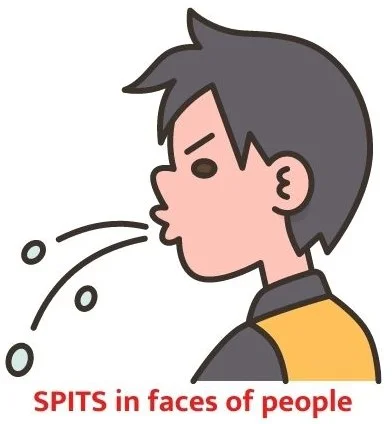
“SPITS in faces of people” refers to the act of forcefully expelling saliva or mucus from one’s mouth with the intention of hitting or landing on the faces of others.
It’s an aggressive and disrespectful behavior that can be both physically and emotionally offensive.
This action is often considered rude and inappropriate, causing discomfort and potentially leading to conflict.
It’s crucial to treat others with respect and refrain from engaging in harmful behaviours that can negatively impact interpersonal relationships and social dynamics.
Remedies: Bell., calc., stram., verat.
SPOKEN to, aversion to being
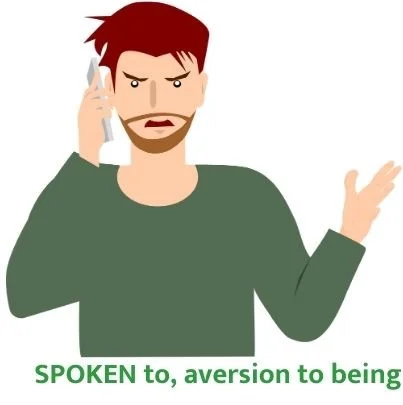
“SPOKEN to, aversion to being” refers to a strong discomfort or hesitance when directly addressed or communicated with verbally.
Individuals experiencing this aversion may feel uneasy, anxious, or distressed when engaged in conversation, especially when it involves being the centre of attention or interacting in social settings.
This aversion can arise from various factors such as social anxiety, fear of judgment, or past negative experiences.
It emphasizes a preference for limited verbal interactions and highlights the emotional challenges associated with engaging in spoken communication.
Remedies: Cham., ars., iod., sulph.
SQUANDERS money

“SQUANDERS money” refers to the act of wastefully spending money without careful consideration or thought.
It implies spending on unnecessary or frivolous things rather than using funds wisely or saving.
When someone squanders money, they often engage in excessive or impulsive spending, which can lead to financial difficulties or lack of resources in the future.
This term highlights a lack of prudent financial management and emphasizes the importance of responsible spending and budgeting to ensure better financial stability.
Remedy: Verat.
See Extravagance by following the link.
STARTING, startled

“STARTING, startled” refers to the sudden and involuntary reaction or movement that occurs when someone is surprised or alarmed by something unexpected. Here’s a simple breakdown:
- Sudden Reaction: “Starting” is the immediate response of jerking or flinching when caught off guard.
- Surprise: It’s triggered by something unexpected or startling, like a loud noise or sudden appearance.
- Involuntary Movement: “Starting” happens without conscious control, often due to the body’s fight-or-flight response.
- Physical Expression: It involves a quick physical movement, like jumping or jerking, as a result of being startled.
- Brief Duration: The “starting” reaction is usually brief and subsides once the surprise passes.
In summary, “STARTING, startled” describes the instinctive and swift response to an unexpected stimulus, showcasing the body’s automatic protective mechanism.
Remedies: Ars., Bell., Bry., Caps., Lac-c.
See Frightened easily by following the link.
STRANGE things, impulse to do
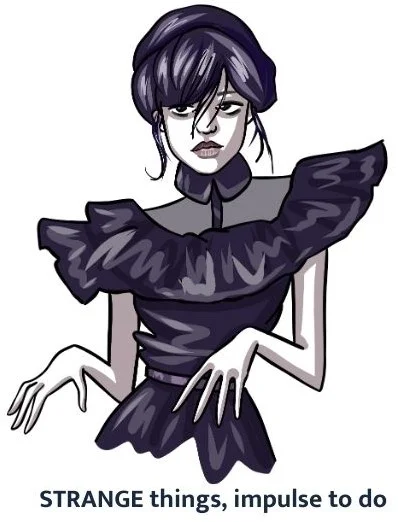
“STRANGE things, impulse to do” refers to a sudden and unusual urge or inclination to engage in unconventional or atypical actions. Here’s a simple explanation:
- Uncommon Urges: “Strange things, impulse to do” suggests having sudden desires for actions that may seem odd or out of the ordinary.
- Unpredictable Nature: These impulses arise unexpectedly and can be unrelated to a person’s typical behavior.
- Curiosity and Novelty: The urge might stem from a curiosity to explore unfamiliar or unconventional activities.
- Emotional State: Sometimes, emotions or circumstances can trigger these impulses.
- Control Challenges: Acting on such impulses might pose challenges in managing one’s behavior.
- Thought Processes: Unusual thoughts can influence these impulses, even if they’re not acted upon.
- Individual Differences: People may experience and respond to strange impulses differently.
In essence, “STRANGE things, impulse to do” reflects sudden and unconventional urges that arise, potentially driven by curiosity, emotions, or unique thought processes.
Remedy: Cact.
STRANGER, presence of, agg.
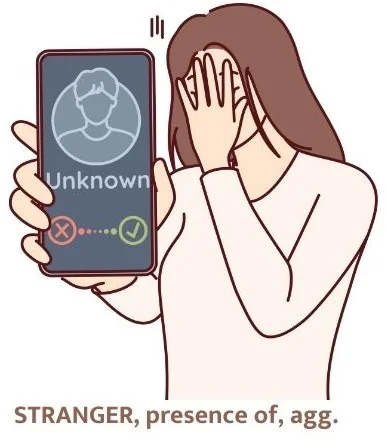
“STRANGER, presence of, aggravates” indicates that the presence of an unfamiliar person worsens a situation. Here’s a simple explanation:
- Unfamiliar Individuals: Suggests that when someone unknown is around,
- Heightened Discomfort: It can intensify feelings of unease, tension, or discomfort in certain circumstances.
- Social Anxiety: The presence of strangers might trigger social anxiety or nervousness in some people.
- Sensitivity: Individuals could be more sensitive to unfamiliar faces, leading to heightened reactions.
- Context Matters: The impact of a stranger’s presence can vary based on the situation and personal feelings.
In essence, “STRANGER, presence of, aggravates” highlights how the appearance of unknown individuals can worsen feelings of discomfort or unease in specific scenarios.
Remedies: Ambr., bar-c., bry., sep.
STRIKING

“STRIKING” refers to something that is extremely noticeable, remarkable, or impressive due to its distinct qualities.
It catches attention and stands out from its surroundings.
It can be related to visual, auditory, or other sensory experiences that leave a strong impression.
In essence, “STRIKING” signifies something extraordinary or eye-catching that captures immediate attention and leaves a memorable impact.
Remedies: Bell., Hyos.
SUCCEEDS, never

“SUCCEEDS, never” means that someone consistently fails to achieve their goals or objectives.
Despite repeated attempts, they do not experience success or accomplish what they set out to do.
It indicates a pattern of continual disappointment in achieving desired outcomes.
Remedies: Am-c., aur., nat-c.
SUICIDAL, disposition/IMPULSE to destroy himself
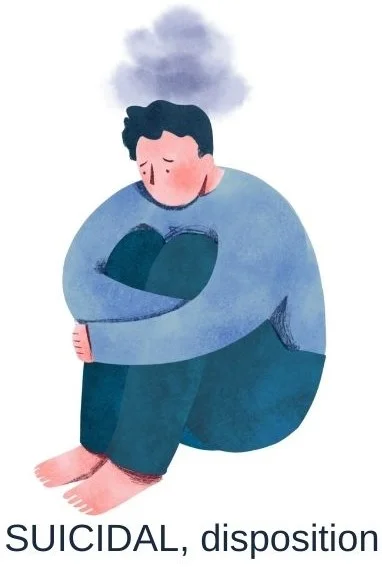
“SUICIDAL, disposition/IMPULSE to destroy himself” refers to a psychological state where an individual experiences a strong inclination or impulse to end their own life.
It signifies a deep emotional pain and distress that lead to thoughts or actions of self-harm or suicide.
This disposition might be rooted in various factors such as mental health issues, overwhelming stress, or feelings of hopelessness.
It’s a serious concern that requires immediate attention, intervention, and support from mental health professionals, friends, and family to ensure the individual’s safety and well-being.
Remedies: Aur., Aur-m., Nat-s.
See KILLED, desire to be by following the link.
SULKY

“SULKY” refers to a mood or behavior characterized by being silent, moody, and displeased.
Someone who is sulky may appear grumpy, withdrawn, or easily irritated.
This disposition often involves refusing to communicate openly or engage in social interactions due to feelings of resentment or dissatisfaction.
A sulky person might exhibit passive-aggressive behavior or display a lack of enthusiasm.
This term is used to describe someone who is in a sullen or petulant state, typically in response to a perceived offense, disappointment, or disagreement.
Remedies: Ant-c., caust., con., plat.
SULLEN (see Morose)
SUPERSTITIOUS

“SUPERSTITIOUS” refers to a belief or behavior based on irrational thoughts that certain actions, objects, or situations have magical or supernatural powers, often leading to specific rituals or practices.
Superstitions can arise from a desire to control uncertain outcomes or to find meaning in random events.
People might avoid certain actions, such as walking under ladders or crossing paths with black cats, due to superstitions.
While some superstitions are harmless, they can also lead to unnecessary fears and decisions.
Superstitions vary across cultures and individuals and can be deeply ingrained in certain societies.
Remedies: Con., zinc.
SURPRISE, pleasant, affection after
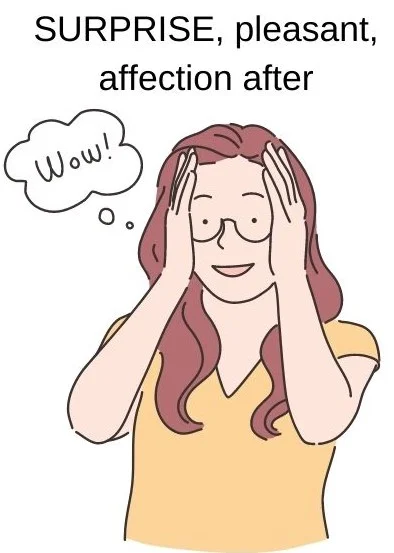
“Pleasant surprise” refers to a delightful and unexpected event or situation that brings joy and happiness.
It often results in a positive emotional response, such as a smile, laughter, or a warm feeling.
This kind of surprise can lead to an increased sense of affection and closeness towards the person or circumstances that caused it.
It fosters positive emotions and can strengthen relationships by creating memorable and heartwarming moments.
Overall, a pleasant surprise is a wonderful experience that can uplift spirits and create a sense of connection and appreciation.
Remedy: Coff.
SUSPICIOUS
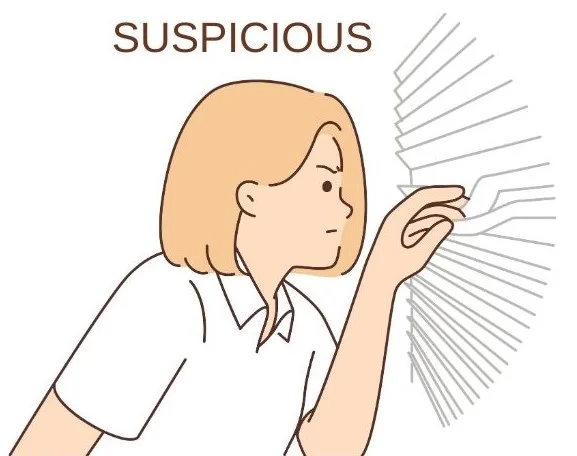
“Suspicious” refers to a feeling or attitude of doubt, mistrust, or misbelief towards someone or something.
When someone is suspicious, they may believe that there could be hidden motives, deceit, or dishonesty involved in a situation.
This can lead to cautious behavior, increased inquiry, and a reluctance to accept things at face value.
Suspicion arises when there are reasons to question the truthfulness or intentions of others.
It can be a natural response to uncertain or unusual circumstances, but it also has the potential to strain relationships and hinder open communication.
Remedies: Acon., Bry., Cic., Dig., Lyc.
SWEARING (see Cursing)
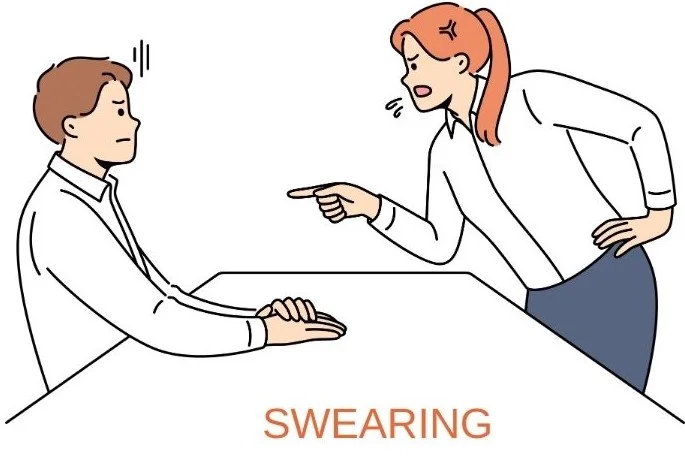
“SWEARING” refers to the use of offensive, vulgar, or profane language to express strong emotions, anger, frustration, or emphasis.
It involves using words that are considered taboo or socially inappropriate in order to convey intensity or to make a point.
Swearing can vary in severity, ranging from mild to highly offensive language.
It is often used casually, but it can also be offensive or disrespectful, depending on the context and audience.
While some people use swearing as a form of self-expression, others may find it offensive or disrespectful.
Read CURSING MEANING by following the link.
SYMPATHETIC
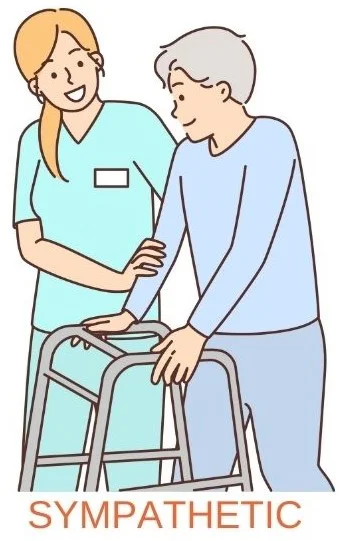
“SYMPATHETIC” describes the quality of understanding and sharing the feelings or emotions of others.
When someone is sympathetic, they show compassion, empathy, and support for someone else’s experiences or challenges.
They listen attentively and offer comfort or assistance without judgment.
Being sympathetic involves being considerate of others’ feelings and showing kindness in times of difficulty or need.
It reflects a caring and supportive attitude towards others’ emotions and struggles.
Remedies: Phos., caust., ign., nat-c.




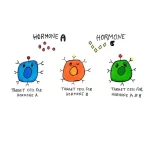

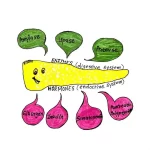
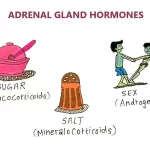

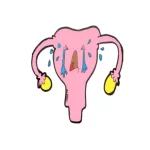
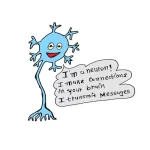
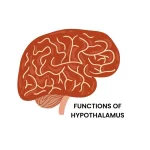

Leave a Reply